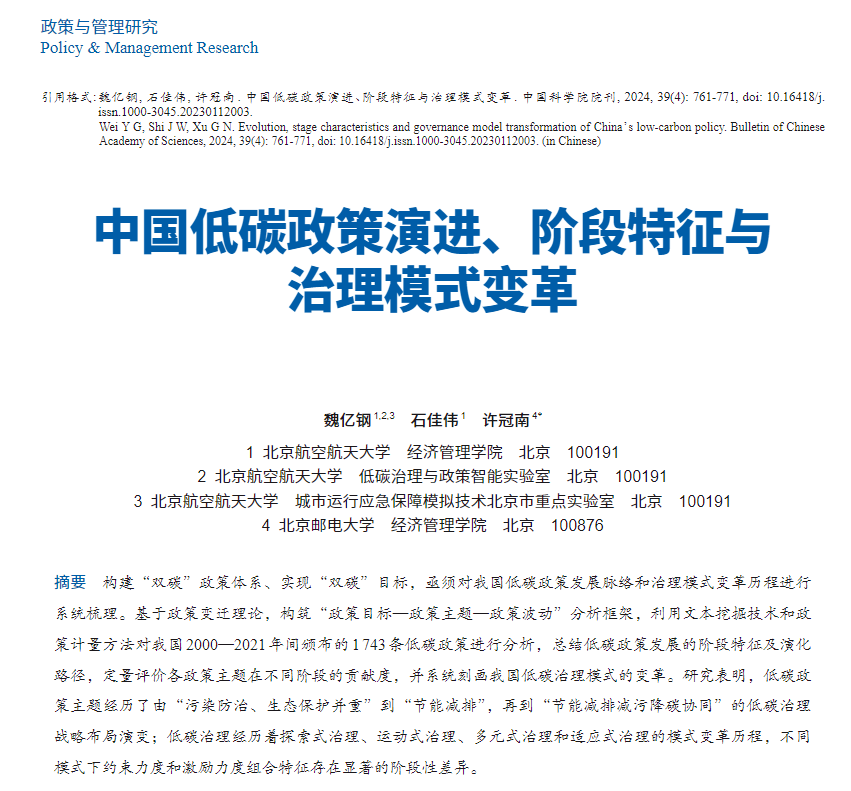
Basic Information
Title: Evolution, stage characteristics and governance model transformation of China’s low-carbon policy
Author(s): WEI Yigang, SHI Jiawei, XU Guannan*
Journal: 中国科学院院刊
Published: 2024.04
DOI: http://www.bulletin.cas.cn/thesisDetails#10.16418/j.issn.1000-3045.20230112003&lang=zh
Abstract
A systematic review of China’s low-carbon policy and paradigm transformation is imperative for establishing a well-designed policy system to achieve the “dual carbon” goals. Based on the theory of policy change, this study constructs an analytical framework of “policy objectives—policy themes—policy fluctuations”. This study uses text mining techniques and policy measurement methods to analyze 1743 low-carbon policies implemented in China from 2000 to 2021. The study summarizes the stage characteristics and evolutionary path of low-carbon policy development in China, evaluates the contribution of each policy theme at different stages, and portrays the paradigm shift in low-carbon governance. The findings reveal that the main low-carbon policy themes have evolved from “equal emphasis on pollution prevention and ecological protection”, to “energy conservation and emission reduction”, and finally to the strategic layout of “energy conservation and emission reduction, pollution reduction and carbon synergy” in low-carbon governance. China’s low-carbon governance has undergone a transformation process through exploratory governance, movement-based governance, pluralistic governance, and adaptive governance, with distinct significant stage differences in the combination of constraints and incentives under different paradigms.